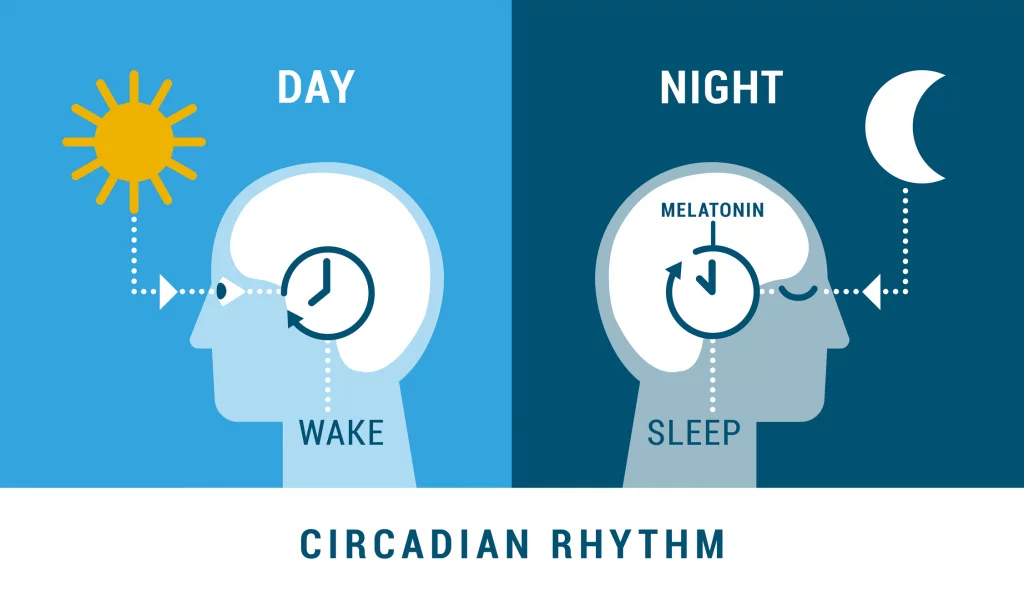
How to stay in sync with your circadian rhythm
A more regular term for your circadian rhythm is called your internal biological clock. This clock, situated in an area of the brain called the SCN (suprachiasmatic nucleus), signals to your body when it’s time to perform your everyday necessities, from sleeping to eating.
The SCN is located in the hypothalamus and is sensitive to signals of dark and light. The optic nerve in your eyes senses the morning light. Then the SCN triggers the release of cortisol and other hormones to help you wake up. But when darkness comes at night, the SCN sends messages to the pineal gland. This gland triggers the release of the hormone melatonin. Melatonin makes you feel sleepy and ready for bed.
In our daily lives, there are small changes that can upset your circadian rhythms, some of these are:
Extra sleep
Your body clock works best when you stick to a schedule. In an ideal world, you’ll go to sleep and wake up within a half-hour of the same time each day, even on weekends.
Travel
When you pass through time zones, you can adjust your watch but not your body clock. It will try to function on the time it is at your home, a problem you may know as jet lag. The more time zones you pass through, the more off you may feel. Your body clock will reset to the new time you’re in, but it can take a few days.
Screen time
Any amount of light signals your brain that it’s time to be up and alert. Even the blue light from your tablet, smartphone, or TV has this effect. To get a good night’s sleep, unplug from all screens some 2 hours before bed. Other artificial lights can have the same effect, so turn off hallway lights and face your alarm clock away from you. If you’re bothered by the light outside your home, put up blackout curtains or use a sleep mask.
Night shifts
If you work at night, you’ll need to sleep during the day. This can be tough since your body is programmed to be awake when it’s light outside. Over time, you can start to have what’s called shift work disorder. You’ll find it hard to stay awake at night, yet struggle to sleep during the day. Naps during the day or your night shift can help.
Your period
Many women notice that they sleep worse before their period starts. This may be due, at least in part, to a change in circadian rhythms. Some studies show that less sleep during this time can reset your body clock and give some relief. Bright daylight or light therapy may also make a difference.